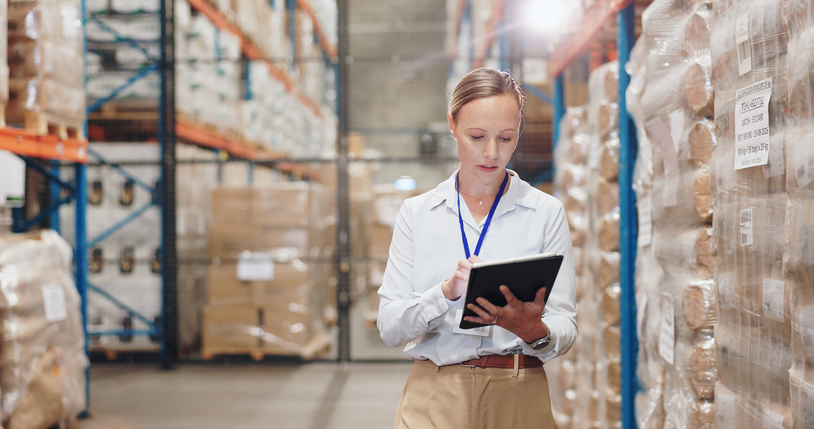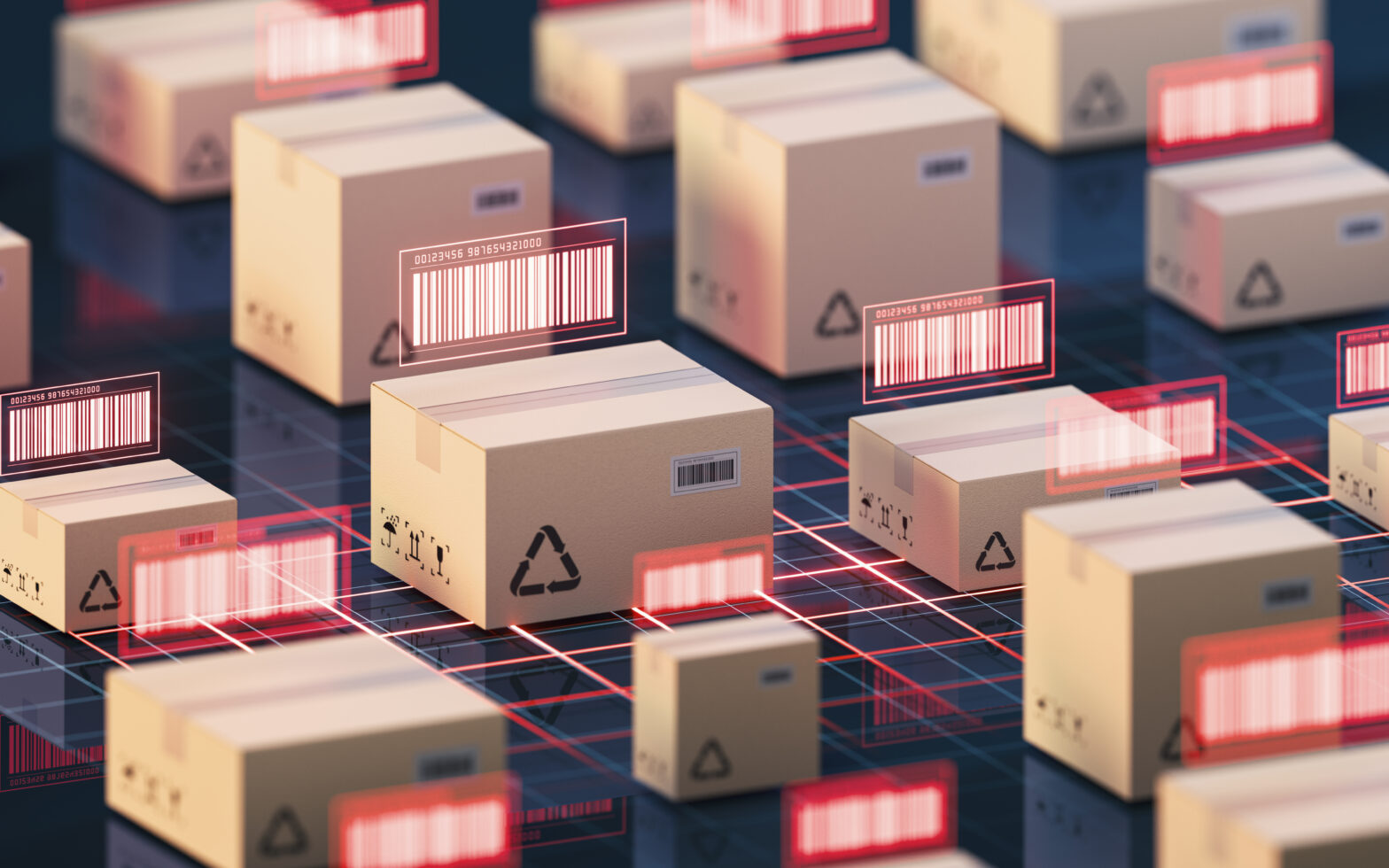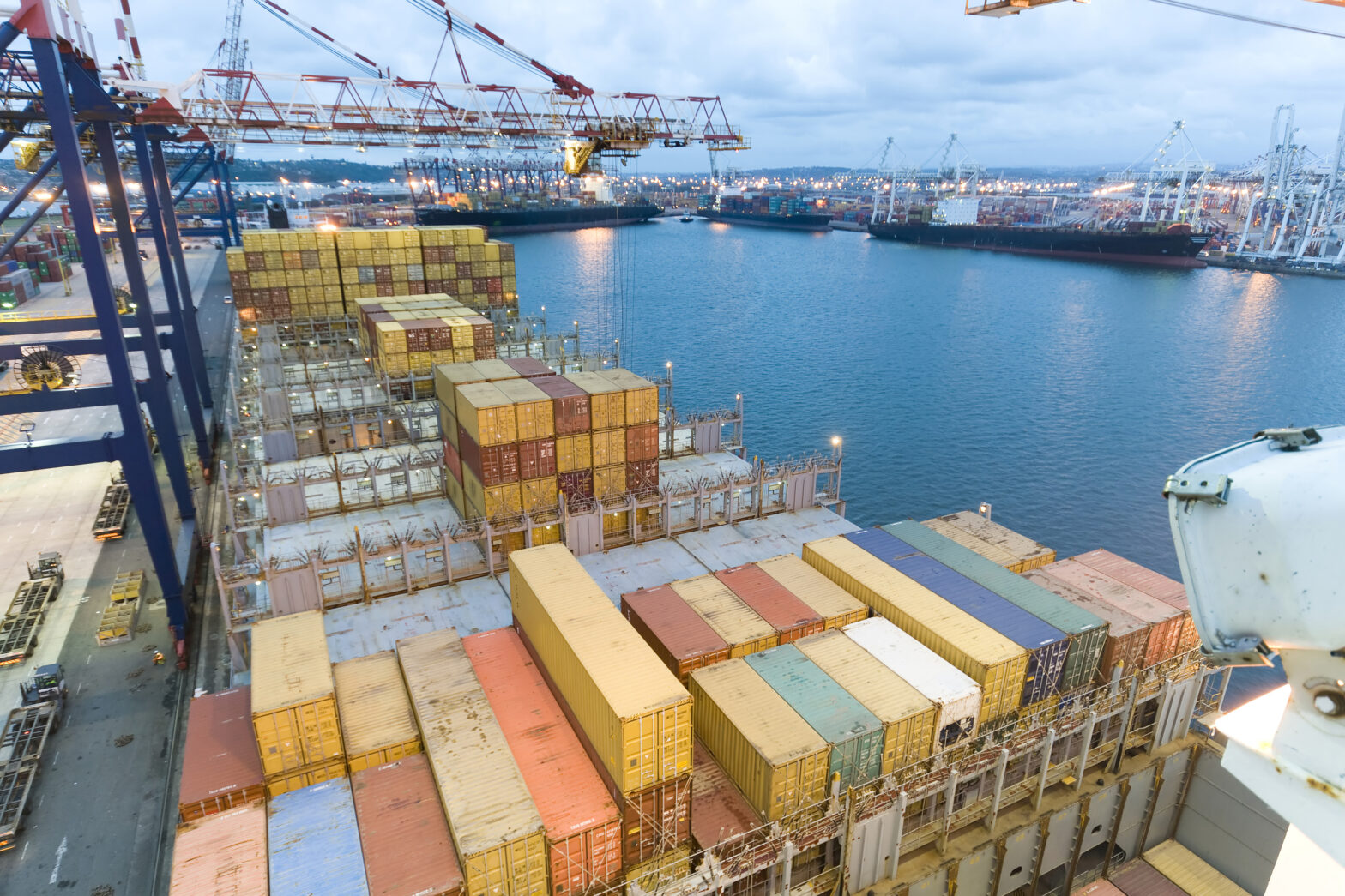If you’re thinking of starting up a plant business, you may well have to import them.
It’s not just a simple matter of ordering the plant and waiting for it to arrive, either. You’ve got some protocol to follow.
The following guidance covers England and Wales. Scotland’s rules are a bit different. For contact details and more info on plant imports in Scotland, read over the Scottish government’s plant health guidance.
As for importing to Northern Ireland, there are no changes to the way plants are imported from non-EU third countries to Northern Ireland. Imports can continue in the same way as before.
But if you’re importing to Great Britain, the guidance differs between importing from EU and non-EU countries so be careful when filling out forms.
Before we begin, note that import controls on EU goods to Great Britain planned from July will not be introduced in 2022. Controls that have already been introduced will remain in place. Dates for new import controls will be coming in autumn 2022 – keep up with the government website for more.
What counts as a plant?
According to government guidance, ‘plant’ means a living plant or a living part of a plant at any stage of growth. This includes trees, shrubs and seeds. A ‘plant product’, meanwhile, is a product of plant origin that is unprocessed and has had a simple preparation, including wood and bamboo.
What do I have to do to import plants?
Sally Cullimore, technical policy manager at the Horticultural Trades Association (HTA), told Small Business: “Importing plants is complex and highly regulated, so The Horticultural Trades Association recommends that any business considering importing plants or plant material registers with their relevant Plant Health authorities first to obtain advice and legal guidance.”
Now for the need-to-knows. From January 1 2022, the following regulated and notifiable goods imported from the EU (except the Republic of Ireland) must go through plant health controls:
- Growing medium attached to plants
- Root and tubercle vegetables
- Some leafy vegetables
- Some fresh produce (fruit and vegetables)
- Some seeds, in addition to those on the high-priority list
- Some cut flowers
A full list of regulated and notifiable goods can be found on the Plant Health Portal.
The high-priority goods list includes:
- All plants for planting
- Ware potatoes
- Some seed for sowing and other plant or forest reproductive material
- Some wood and wood products
- Used agricultural or forestry machinery
There is a set of steps you need to follow if you import high-priority goods. You can find them here.
What documentation do I need?
If you are importing ‘regulated and notifiable’ plants and plant products from the EU (excluding Ireland), Liechtenstein and Switzerland to GB after January 1 2022, you will need to pre-notify them. The likelihood is that you’ll be registering for IPAFFS – more on that in a moment.
‘Pre-notification’ means giving advance notice to the responsible authority for goods that arrive in Great Britain. You must give notice:
- At least four working hours before the goods land in Great Britain, for air and ‘roll-on-roll-off’ freight
- At least one working day before goods arrive in Great Britain for all other freight
Failure to give enough pre-notification notice means that your consignment may be held until the requirement is met. It could also result in your consignment being destroyed.
After you’ve pre-notified, you’ll receive a message on the relevant IT system to say if your goods need any checks.
Those importing from the EU will need to meet their customs requirement as well as having an EORI number.
>See also: EORI number: What it is and how to get or check one
You’ll also need a phytosanitary certificate.
Do I use PEACH or IPAFFS?
If you are new to the process of pre-notifying your goods, register for and use IPAFFS (Import of Products, Animals, Food and Feed System). If you are currently using PEACH for EU pre-notifications (that’s Procedure for Electronic Authentication for Certificates from the Horticultural Marketing Inspectorate – you can see why it’s shortened), please continue to do so until directed to move to IPAFFS.
What is a phytosanitary certificate?
A phytosanitary certificate, which is what the UK requires since leaving the EU, is needed for each consignment from the plant health authority in the country where your supplier is.
It’s a statement from said authority that the plant has been officially inspected and complies with standards to come into Great Britain and is free from quarantine pests and diseases. The inspection must be done no more than 14 days before the consignment is dispatched from the country where your supplier is. Someone at the inspecting plant must have also signed it within the same 14-day period.
You don’t need a phytosanitary certificate to import these plants into Great Britain:
- Fruit and vegetables that have been processed and packaged such as salads, sandwiches and frozen material
- Composite products such as nut or seed butters that contain processed fruit or vegetables
These unregulated plants and plant products do not need to go through any plant health controls and won’t need a phytosanitary certificate:
- Pineapple (fruits of Ananas comosus)
- Kiwi (fruits of Actinidia spp. Lindl)
- Coconut (fruits of Cocos nucifera L)
- Citrus (fruit and leaves of Citrus spp. L.)
- Kumquat (fruit of Fortunella spp. Swingle)
- Bitter orange (fruit of Poncirus L. Raf)
- Persimmon (fruit of Diospyros spp. L.)
- Durian (fruits of Durio zibethinus Murray)
- Cotton (bolls) (fruits (bolls) of Gossypium spp.)
- Curry leaves (leaves of Murraya spp.)
- Banana and plantain (fruits of Musa spp.)
- Mango (fruits of Mangifera spp. L.)
- Dates (fruits of Phoenix dactylifera L.)
- Passionfruit (fruits of Passiflora spp. L)
- Guava (fruits of Psidium spp.)
- Any fruit and vegetables that are processed and packaged (for example, soups, salads, sandwiches, frozen material)
- Composite products such as nut or seed butters that contain processed fruit or vegetables
It may be possible to import prohibited goods into Great Britain with a scientific licence, if they satisfy criteria. Take a look at the government’s website for more.
Phytosanitary certificates have a ‘quantity declared’ section which may trip you up. Just remember to measure the quantity of flowers by their stems. Meanwhile, quantities must be stated in kilograms (kg) for fruit, vegetables, soil and branches which have foliage, potatoes, grain and the following plants for planting: bulbs, corms and rhizomes, plants in tissue culture and seeds. As for any other plants for planting, the quantity has to be listed as the number of items in the consignment.
If you’re importing from the EU and need a phytosanitary certificate for your consignment, check that your EU exporter has issued a phytosanitary certificate before it arrives in Great Britain. Make sure you get a scanned copy from your exporter.

When and where do I submit the phytosanitary certificates?
Within three days of your consignment reaching Great Britain, post the original phytosanitary certificate to your animal and plant health agency (APHA).
For consignments landing at Heathrow or Gatwick, send the certificate to:
Animal and Plant Health Agency
1st Floor
Building 4
Heathrow Boulevard
284 Bath Road
West Drayton
Middlesex
UB7 0DQ
For consignments landing anywhere else send the certificate to:
Animal and Plant Health Agency
Foss House
1st Floor
Kings Pool
1-2 Peasholme Green
York
YO1 7PX
Get in touch with the Forestry Commission for orders of wood, wood products or bark. Your local forestry inspector will agree with you which address you need to send the phytosanitary certificate to.
What if the consignment fails?
If all or part of your consignment fails, an inspector might be able to advise you on what to do to help it pass. If your inspector decides that the failed goods pose a risk to plant health, they could destroy your goods or ask you to return them. If you need to return goods to the EU, they’ll be considered an export. You’ll need an exporters licence for that.
Do I need to worry about plant passports?
After your shipment passes plant health controls, you can move it on. You will need a UK plant passport for movement of goods from the first place of destination if:
- They are moved to another professional operator
- They are sold to final users (those buying for personal use) under a distance contract such as buying online
- They are moved to another one of your premises that is more than ten miles from the premises the consignment arrived at
- The phytosanitary status of the consignment changes – for example, if it is reconfigured, such as two plants previously in separate pots planted up in a new pot together
The EU plant passport is no longer recognised in Great Britain. UK plant passports have replaced EU plant passports but even then, plant passports are only really issued to professional operators.
If you import goods from a non-EU country to Great Britain via the EU, your goods could be treated as an EU import. While in the EU, they must have:
- Entered into free circulation
- Passed EU plant health checks
They will be treated as a non-EU country import if they didn’t enter into free circulation or pass plant health checks in the EU.
Fees and charges
You’ll have to pay fees for each consignment imported from a non-EU third country. Inspection fees for documentary and identity checks are split.
How much you have to pay for imports to England and Wales will depend on the type of plant material as well as its risk level.
If you’re importing from the EU and your shipment needs plant health checks, these fees will apply:
- Documentary checks. You have to pay £5.25 in England and Wales. This fee applies to all regulated plants and plant products, including those on the high-priority list
- Identity checks. How much you have to pay in England and Wales will depend on the type of plant material you import, including its risk level
- Physical checks. How much you have to pay in England and Wales will depend on the type of plant material you import, including its risk level
Check out this link for more about risk levels and the associated inspection fees for EU imports that apply in England and Wales.
I need help
Ring the HMRC helpline 0300 322 9434 Monday-Friday 8am-10pm and Saturday-Sunday 8am-4pm if you need more guidance.
For more information on plant imports in England and Wales, email planthealth.info@apha.gov.uk or phone 0300 1000 313.
To learn more about physical checks and importing goods with wood packaging material, check out the government guidance on importing plants from EU and non-EU countries.
Case study: Joe Thompson, Underleaf
Small Business spoke to Joe Thompson, director of operations at Underleaf. The company purchases lots of indoor, tropical and subtropical plants along with lots of planters and associated materials, plus items such as special wheels for the pots.
He explains why importing plants has become more difficult in recent years.
Where do you get plants and plant products from?
We purchase from various different suppliers, but most comes from one supplier in Holland. We get the odd Mediterranean plant from Holland as well.
The supply chain is really interesting. We purchase lots of plants from suppliers in the UK, which originated in Italy in Spain. They’ll come with plant passports, but we won’t have to deal with the import processes for those. We also buy planters and pots, which will originate in China or Vietnam that will come through Europe. Some of those will be subject to import tariffs.
All indoor plants come through Holland, the biggest hub in the world. They’ll be buying from Spain and Italy or importing from Costa Rica. Some of those people further down the chain will also be having to produce the passport.
We have to be registered with Defra (Department for Environment Food & Rural Affairs) for various numbers that we need to have. That gives us the right to import these items.
Why do you advise small businesses against importing plants?
It’s really costly. Part of the issue is we getting our heads around all the costs that are associated with importing, because it has become very complicated. We now have to pay VAT on these items. You have to have a VAT deferment account in place with HMRC to be able to manage that process. If you don’t have one of those accounts, which we don’t, because we don’t know how to set it up as it’s too complicated, then we use the VAT account of an import agency, who will then charge us for that service.
Duty’s different for different products. There’s a lot ambiguity. The agency that is organising that on our behalf charge us for that privilege. There’s a cost to having everything inspected, which is undertaken by our supplier and depends on the product that you’re importing.
Then we’ll pay double, because then Defra will charge us for inspection, once the goods get to the UK. That’s particularly painful. The feeling we got was that we got a bit clobbered when new regulations came in this year, and the agencies are doing on our behalf. We’re getting to grips with all of these new regulations and I think they then charged us for the extra time [they spent].
Then the other issue is that we have to now have the addresses associated with our PEACH account. Every time we’re importing, we’re paying £35 for that shipment to be registered. We could just do it ourselves, but we don’t really have the know-how or the resource. At some point, when we have some time, we’ll look into it and see if we can bring some of this process in-house because I just know that we’re getting hammered left, right and centre by all these different agencies. The sooner we can do it ourselves, really, the better.
What other issues have you encountered?
We had so much flexibility before. So firstly, the time that it took to get things was much reduced. We could place an order and get something two days later. Then if there was a problem with that order, we could send it straight back, you just refused to take it. That’s not possible now because we have to be a registered exporter in order to send something back. This has horrendous consequences for us. We were doing a project up in Scotland, which was a massive project for us, and all of the plants for that project got sent to London – two months early. So suddenly, we had £5,000 of plants that we had to find a space for. Unless you’ve got really good greenhouse conditions, the quality of those materials decline so quickly. So, we had to deal with all these plants that we couldn’t send back and our supplier was just shrugging shoulders. So yeah, a lot of consequences like that.
Roughly, how much do agencies charge? Where do you find such an agency?
The agencies have just been given to us by our suppliers. Our supplier was very good in that they managed the whole process on our behalf. We just went with it, because we couldn’t not get our plants – that would have been catastrophic. But we’re just getting to grips with how much they’re charging. It could be between five and ten per cent. It’s opaque because different products have different levels of duty and that’s not really broken down clearly. So yeah, we haven’t quite worked that out yet.
It’s been like an avalanche of paperwork. We’ve been receiving invoices left, right and centre. And you think, well, it’s very important to understand what you’re getting charged for. But we’re firefighting on so many different fronts, so it’s lower down the list of priorities. We were just getting through the few months, what we were focused on. Now it’s at the back of our mind, we really need to get to grips with it to find out what they charge.
What’s been the biggest change post-Brexit?
The flexibility was a big one, because we could place an order and receive it two days later. If clients had last-minute requests, we could fill them quite easily. We could normally just add something onto another delivery. First of all, we had more deliveries, because we’re now in a position where you have to spend the minimum amount which is much, much higher. We could spend £1,000 and it wouldn’t be a problem. Now if we place an order of £1,000, we’re going to lose money on it. I think our business developed because we were so flexible, and we were able to deliver things very quickly for our clients as a lot of our projects time are time-sensitive.
We had lots of difficult conversations with clients where we say, “Things are different now – you have to give us a lot more warning.” Also, that poses logistical difficulties, because it’s a lot easier to deal with £1,000 order in terms of taking it in and stocking whatever you’re doing. Having double or triple that takes more organisation and more space. So yeah, that’s one main area that’s really got a lot harder.
The supply and demand has been very difficult. That’s partly because of Covid. There are certain plants now that we can’t get hold of because they’re subject to different restrictions. And so there’s one particular plant, a staple of ours for lots of projects, and we used to be able to get those in from Spain or Italy, but we can’t get them anymore because they don’t have the plant passports.
We used to get plants delivered directly to sites where we were going to use them. But now because you have to register the address of that site a week in advance, it sometimes doesn’t line up properly. More and more, we’re taking deliveries in to where we have our basic operations. And then we are taking those plants ourselves to the site in question. So that’s incurring more delivery costs there as well.
Are you using more British plants and products now, as was the general expectation when we left the EU?
The Dutch have ruled the world when it comes to plants. There’s no way that the UK could match up to their expertise and their infrastructure. We’ve thought about whether it would make sense for us to have a nursery in the UK, but the cost associated with it – you need massive investment just to get started.
The cost of setting up a proper greenhouse is astronomical. You can do it on a small scale and be a specialist producer. But if you’re doing it on a scale then that could potentially be millions and millions of pounds.
Obviously, there are those places like flower markets where lots of people will go, and I guess for smaller businesses, they’ll do. But then there’s another step in the chain and what tends to happen, obviously, the cost doubles and the quality isn’t as good, which is why we import. They’re buying from other suppliers that maybe aren’t as good and buying in volume and may be holding on to them longer so they may be deteriorating and possibly buying them from sources which aren’t as good, getting them at a lower price.
The New Covent Garden Flower market (wholesaler) is very accessible for all sorts of people, both businesses and end consumers. We don’t tend to buy indoor plants there but if small businesses want to avoid the rigmarole of importing plants from Holland, it’s a good place to go. My recommendation would simply be to check quality carefully before buying.
Another channel is the SE Asian growers that send plants in the post. A lot of them sell on Instagram and Etsy but it’s a very risky business so I would avoid buying any so called ‘rare’ plants from those sorts of sellers.
>See also: 4 steps to help your small business grow on Instagram
What common mistakes do small businesses make when importing plants?
I know the mistakes that we make – our retail business doesn’t make any money at all. I have a feeling that there are a lot of others like coffee shops, though dozens and dozens out there, they’re probably not making that much money. There’ll be a person that is putting every hour of their life into it. They’re enjoying it, but not really making any money.
My feeling is if you want to be successful, then you have to be really disciplined and keep your range narrow. You should probably figure out how to make online work. You can lose a lot of money on plants, they deteriorate. It’s hard to keep plants looking good for any length of time, you really have to know what you’re doing and have good conditions. Although you can have some plants sitting in the shop for months, I think in a lot of cases after a week, after a couple of weeks, they’re not going to look very good. You’re going to lose a lot of money on waste.
What we specialise in, or what we focus on, is really knowing your plants and being able to recommend the right plants to the right place. That’s important. There are a lot of businesses that just kind of churn out the same plants and treat them like flowers for so you can keep them for a month or two and then just replace them. I think people are getting more and more concerned about where plants are coming from and working on supply chain procedures. I guess it’s the same for many businesses – just be passionate about what you do. Let that passion shine through to your customers.





